Articles
Research Article
1. Generative Artificial Intelligence and Usage in AcademiaResearch Article
2. Orta Asya Şamanlarına Özgü Tedavi Sistemi: Hastalığı GöçürmeResearch Article
3. A Conceptual and Applied Analysis of the Level 5 LeadershipResearch Article
6. Türkiye’nin İklim Değişikliği Politikalarının AvrupalılaşmasıResearch Article
11. Suriyeli Göçmenlerin Göç Süreci Ve Rotaları: Kilis ÖrneğiResearch Article
13. Çanakkale Troya Müzesi’nden Bir Zeus BüstüResearch Article
21. Voter Sophistication and Voting Behavior in TürkiyeIssue Editorial Board
Issue Reviewers
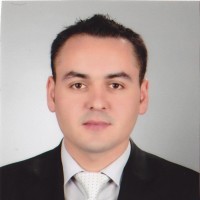
2003 yılında girdiği Ege Üniversitesi Edebiyat Fakültesi Türk Dili ve Edebiyatı Bölümü’ndeki lisans öğrenimini 2007 yılında tamamladı. Aynı üniversite ve bölümde 2007 yılında başladığı yüksek lisans öğrenimini, 2010 Ocak’ta savunduğu “Özbek Çocuk Folklorunda Türler” adlı teziyle tamamladı. 2011 yılında Ege Üniversitesi Sosyal Bilimler Enstitüsü Türk Dünyası Araştırmaları-Türk Halkbilimi anabilim dalında doktora öğrenimine başladı. Doktora çalışmaları kapsamında Amerika Birleşik Devletleri, Kırgızistan, Meksika gibi çeşitli ülkelerde araştırmalarda bulunan Keskin; Prof. Dr. Alimcan İNAYET, Prof. Dr. Özkul ÇOBANOĞLU ve Prof. Dr. Dan BEN-AMOS danışmanlığında hazırladığı “Türk Kültüründe Alkışlar ve Kargışlar: Metin ve Bağlam Merkezli Bir İnceleme” adlı teziyle 2018 yılında doktora öğrenimini tamamladı.

2010- 2019 yılları arasında MEB'e bağlı okul ve kurumlarda öğretmen, idareci ve proje koordinatörü görevlerini yerine getirdim.
Afyon Kocatepe Üniversitesi Eğitim Fakültesinde öğretim üyesi olarak görev yapmaktayım.
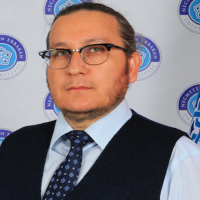
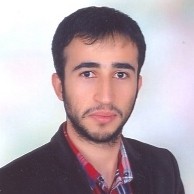




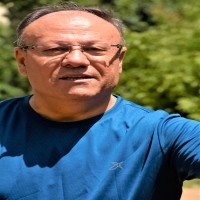



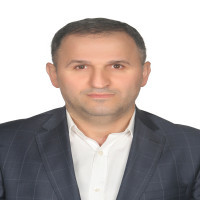
Trabzon Çaykara doğumlu.
ilk orta ve Lise eğitimini İstanbul'da tamamladı.
Lisans Yüksek Lisans ve Doktora eğitimini Kırgızistan Türkiye Manas Üniversitesinde tamamladı.
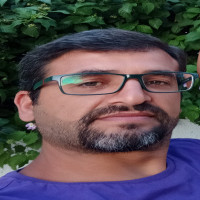




 Web
Web
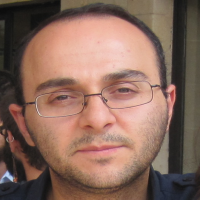
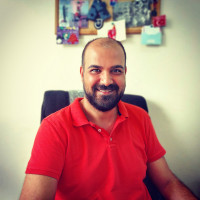


1981 yılında Konya/Ereğli’de dünyaya geldi. İlköğrenimini Öğretmen Abdurrahim İlkokulunda, ortaokul ve lise öğrenimini ise Ereğli Lisesinde tamamladı. Lisans eğitimini Afyon Kocatepe Üniversitesi, Fen- Edebiyat Fakültesi, Türk Dili ve Edebiyatı bölümünde 2003 yılında, Tezsiz Yüksek Lisans Eğitimini, 2004 yılında Afyon Kocatepe Üniversitesi, Sosyal Bilimler Enstitüsünde bitirdi. Tezli Yüksek Lisansını da yine Afyon Kocatepe Üniversitesi, Türk Dili ve Edebiyatı Ana Bilim Dalı, Yeni Türk Dili bilim dalında, “Bolvadin, Çay ve Çobanlar Ağzı” adlı tez ile 2007 yılında tamamladı. Doktora eğitimini Ege Üniversitesi, Sosyal Bilimler Enstitüsü, Türk Dili ve Edebiyatı Ana Bilim Dalı, Türk Halkbilimi Bilim Dalında 2016 yılında “Özbek Mizahında Nasreddin Hoca Tipi ve Fıkraları” adlı tez ile bitirdi. Eylül 2016’da Uşak Üniversitesi, Fen- Edebiyat Fakültesi, Çağdaş Türk Lehçeleri ve Edebiyatları Bölümüne atandı. Evli ve bir çocuk babası olan Solmaz, 2021 yılında Türk Halk Bilimi alanında doçent ünvanını almıştır. Solmaz, Türkoloji alanında muhtelif çalışmalar yapmaya devam etmektedir.
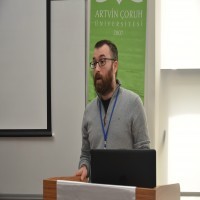
Erol Subaşi 2008 yılında Marmara Üniversitesi Fransızca Kamu Yönetimi Bölümü'nden mezun oldu. Galatasaray Üniversitesi Siyaset Bilimi Yüksek Lisans Programı'ndan (Fransızca) 2011 yılında yüksek lisans, 2018 yılında da doktora derecesi aldı. 2014-2015 akademik yılında Birleşik Krallık, Londra'da Brunel Üniversitesi'nde misafir araştırmacı olarak çalışmalarda bulundu. Doktora tezi 2019 yılında Türk Sosyal Bilimler Derneği tarafından Behice Boran Genç Sosyal Bilimci ödülüne layık görüldü. Subaşi 2022 yılında Siyaset Bilimi alanında Doçent unvanı almaya hak kazanmıştır.
Recep Tayyip Erdoğan Üniversitesi Siyaset Bilimi ve Kamu Yönetimi Bölümü'nde 2012-2018 yılları arasında araştırma görevlisi, bu yıldan sonra ise Siyaset ve Sosyal Bilimler Anabilim Dalı'nda Doktor Öğretim Üyesi olarak görev yapmaktadır. Subaşi 2022 yılında Siyaset Bilimi Doçenti ünvanı almaya hak kazanmıştır. Çalışma alanları içinde Türk Siyasal Hayatı, Siyaset Sosyolojisi, Siyasal Düşünce ve Akımlar bulunmaktadır. Bilhassa, devlet, iktidar ve toplum arasındaki değişken ilişki biçimleri, Türk siyasal hayatının siyasal sosyolojisi, farklı düşünsel akımlar arasındaki mücadeleler ve siyasal düşünce tarihi temel ilgi alanlarını oluşturmaktadır.
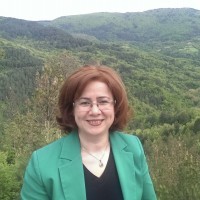
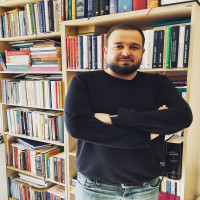



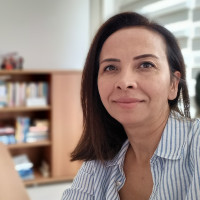
Gülay Ekren is an academician in Management Information Systems (MIS). She has completed her BSc in Computer and Instructional Technologies, an MSc, and a PhD in MIS. She works as an Assistant Professor at the Computer Technologies Department of Ayancık Vocational College, Sinop University, Turkey. Her research interests include Information Systems and Technologies, Data Science and Analytics, and Digital Business Management.


2014 yılında Atatürk Üniversitesi İlköğertim Bölümü’de doktorasını tamamlayan Mertol, Tübitak Doktora araştırma bursu ile New York St. John’s University’de Üstün Zekâlıların Eğitimi konusunda dünyaca ünlü isimlerden biri Güney Koreli Prof.Dr. Shooke Cho ile 8 ay NewYork’ta kalarak çalışmıştır. Kısa bir dönem MEB Özel Eğitim ve Rehberlik Genel Müdürlüğünde Özel Yeteneklilerin Geliştirilmesi Daire başkanlığı yapmıştır. KKTC Yakındoğu Üniversitesi’nde bir yıl süreyle Üstün Zekalılar Öğretmenliği bölümünde yarı zamanlı ders veren Mertol’un özel yeteneklilerin eğitimi ve dikkat ve algısı konusunda çeşitli yayınları bulunmaktadır. Özel eğitim ve özel yetenek konusunda iki bilimsel kitabın editörlüğünde bulunmuştur. Yurt içi ve yurt dışında farklı üniversitelerde ders vermeye eden Mertol, Üç doktora iki tezli yüksek lisans mezunudur. Farklılaştırma, Zenginleştirme ve Sosyal Bilgiler, coğrafya , okul öncesi alanlarında çalışmalara devam etmektedir. Multidisiplinler çalışmalara daha çok ağırlık veren Mertol, Halen Tokat Gaziosmanpaşa Üniversitesi Bölgesel Coğrafya alanında çalışmaktadır. Evli ve iki çocuk babasıdır.
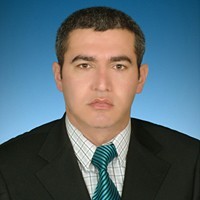
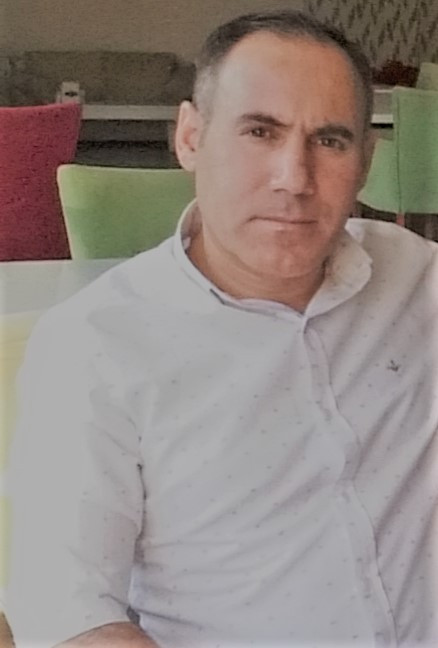
Mahsum AVCI CV
2005 yılında Atatürk Üniversitesi Eğitim Fakültesi Psikolojik Danışma ve Rehberlik Anabilim Dalı lisans eğitimini tamamlamıştır. Mezuniyetini hemen ardından Ankara’da bir özel eğitim kurumunda (Rehabilitasyon Merkezi) çalıştı. 2006- 2017 yılları arasında Milli Eğitim Bakanlığına bağlı lise ve Rehberlik araştırma merkezlerinde ( RAM) Psikolojik Danışman olarak çalışmıştır. 2016 yılında Atatürk Üniversitesi Eğitim Fakültesi Psikolojik Danışma ve Rehberlik Anabilim Dalında “Lise öğrencilerinin kişilerarası problem çözme becerilerinin sosyometrik statülerine göre incelenmesi” konulu tezi ile Yüksek Lisans eğitimini tamamlamıştır. Rehberlik Araştırma Merkezi Müdürlüğünde çalıştığı süre içinde idareci, öğretmen ve ailelere Psikoeğitim Eğitici Eğitimi, Bağımlılıkla Mücadele, Özel Eğitim Formatörlük, 0-18 yaş aile eğitimi ve İletişim Becerileri Eğitimcilerin Eğitimi Kurslarını vermiştir. Doktora öğrenimi boyunca Doç. Dr. Taşkın Yıldırım’dan Dinamik Yönelimli Kısa-Yoğun-Acil Psikoterapi Eğitimini usta-çırak ilişkisi içerinde almıştır. Ayrıca Prof. Dr. Ebru Şalcıoğlu’ndan Bilişsel Davranışçı Eğitiminin yanı sıra farklı kurumlardan Psikolojik Testler (Objektif ve Projektif), EMDR ( Temel, İleri ve Çocuk), Dr. Manfield’en temel ve ileri düzey Flash Emdr tekniği, Kısa Süreli Çözüm Odaklı Terapi eğitimini almıştır. Avcı; çeşitli kurumlar tarafından desteklenen ‘Travmatik Yasantılarda Psikolojik İlk Yardım ve Kriz Olaylarına Müdahale Eğitici Eğitimi’, ‘Psikolojik Travma, Yas Tedavisi, İstismar mağduru bireylerle EMDR projesi’ ve ‘Zekâ Oyunları Eğitici Eğitimi Projelerini’ yazmış ve yürütmüştür. 2021 yılında İnönü Üniversitesi Eğitim Bilimleri Enstitüsünde ‘‘Objektif ve Projektif Testler Bağlamında Travmatik Yas Yaşayan ile Yaşamayan Üniversite Öğrencilerinin Ruhsal Süreçlerinin İncelenmesi’’ konulu teziyle doktora eğitimini tamamlamıştır. 2018 yılında Bingöl üniversitesine Öğretim Görevlisi olarak atanmıştır. O tarihten bugüne aynı üniversitenin Fen Edebiyat Fakültesi Psikoloji ve Sosyal Hizmet Bölümlerinde Çocuk ve Ergen Psikopatolojisi, Psikolojik Testler, Yetişkinlik, Yaşlılık ve Ölüm Psikolojisi, Kısa Dinamik Terapi, Aile Danışmanlığı ve Terapisi, Anormal Psikolojisi I ve II, Psikolojiye Giriş, Kriz ve Krize Müdahale, Sosyal Psikoloji, Sosyal Hizmet Müdahalesi II, Sosyal Hizmet Müdahalesi I, Tıbbi ve Psikiyatrik Sosyal Hizmet ve Sosyal Hizmette Görüşme Teknikleri derslerini vermiştir. Psikolojik Danışman olan Avcı; travmatik yas, yas, rüya analizi, rüyaların psikoterapide kullanılması, projektif teknikler, kişilik özellikleri, ruhsal belirtiler ve intihar alanlarında bilimsel çalışmalar yapmaktadır.
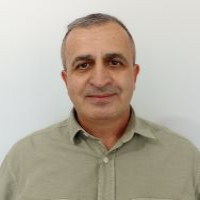




 Web
Web
He completed his undergraduate education at Istanbul University, Faculty of Political Sciences, Department of International Relations in 2003. He completed his master's degree at Boğaziçi University, Department of Atatürk's Principles and History of Turkish Revolution in 2005 and his PhD at Istanbul University, Institute of Social Sciences, Department of International Relations in 2012. He is currently a faculty member at Erciyes University, Faculty of Economics and Administrative Sciences, Department of Political Science and Public Administration. His research interests include Turkish political life, health policies, immigrant integration, migration and public policy.





 Web
Web
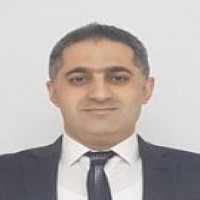
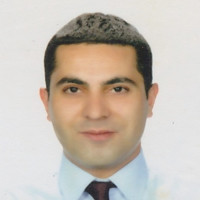
17.04.1979 tarihinde Sivas’ta dünyaya gelen Mikail Acıpınar ilk ve orta öğrenimini aynı şehirde tamamladıktan sonra 1998-99 öğretim yılında Ege Üniversitesi Edebiyat Fakültesi Tarih Bölümü’nde yüksek öğrenimine başladı. Dört yıllık öğreniminin ardından, hazırladığı bitirme tezi ile 2002 yılında Ege Üniversitesi Edebiyat Fakültesi Tarih Bölümü’nden mezun oldu. 2002-2003 öğretim yılında Ege Üniversitesi Sosyal Bilimler Enstitüsü Yeniçağ Tarihi Anabilim Dalı’na başladığı Yüksek Lisans eğitimini 2005 yılında savunduğu “XVI. Yüzyılda Balat Kazâsı (Tahrir Defterlerine Göre)” başlıklı teziyle tamamladı. Aynı yıl Ege Üniversitesi Sosyal Bilimler Enstitüsü Yeniçağ Tarihi Anabilim Dalı’nda Doktora Eğitimine başladı.
2005, 2007 ve 2008 yıllarında kazandığı çeşitli yurtdışı burslarıyla İtalya’nın farklı şehirlerinde sertifikalı dil eğitimleri aldı. Venedik, Floransa ve Lucca’da bulunan devlet arşivleri ve kütüphanelerinde alanıyla ilgili çalışmalar yaptı. 26.10.2011 tarihinde “Osmanlı-Floransa İlişkileri (XV-XVI. Yüzyıl)” başlıklı tezini başarıyla savunarak “Doktor” unvanı almaya hak kazandı. 2013 yılında İzmir Katip Çelebi Üniversitesi Tarih Bölümünde Yardımcı Doçent olarak görev yapmaya başladı. 2017 yılında Doçent unvanını almaya hak kazandı. 2024 yılında ise Profesör olarak atandı. İngilizce, İtalyanca ve Osmanlıca gibi kaynak dillerine vâkıf olan Mikail Acıpınar, 2004 yılında Ege Üniversitesi Edebiyat Fakültesi Tarih Bölümü’nde başladığı görevine İzmir Katip Çelebi Üniversitesi Tarih Bölümünde devam etmektedir.
Nergiz Aydoğdu, 1997 yılında İstanbul Üniversitesi, Siyasal Bilgiler Fakültesi, Kamu Yönetimi Bölümü’nden mezun oldu. Marmara Üniversitesi Ortadoğu ve İslam Ülkeleri Enstitüsü’nde Siyasi Tarih ve Uluslararası İlişkiler Bölümü’nde, “Namık Kemal’de Siyasi Kavramlar” başlıklı tez ile yüksek lisans derecesi aldı. 2008 yılında Marmara Üniversitesi, Sosyal Bilimler Enstitüsü, Felsefe ve Din Bilimleri Anabilim Dalında “Makyavelist Düşüncenin Türkiye’ye Girişi-Onsekizinci Yüzyıl Osmanlı Siyaset Felsefesi” başlıklı tez çalışması ile doktorasını tamamladı. 2010 yılından itibaren Kırklareli Üniversitesi, Siyaset Bilimi ve Kamu Yönetimi Bölümü’nde öğretim üyesi olarak çalışmaktadır. Türk Siyasal Hayatı, Türk Modernleşmesi, Tanzimat Dönemi Türk Düşüncesi ve Tanzimat Basını üzerine çalışmaları bulunmaktadır.
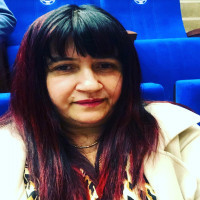
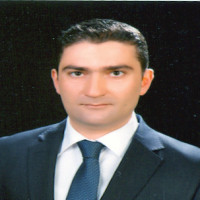



 Web
Web
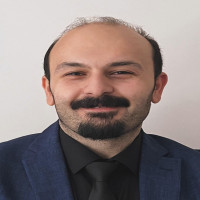

 Web
Web
Doç. Dr. Oya Mortan Sevi, Ege Üniversitesi Edebiyat Fakültesi Psikoloji Bölümü'nde Lisans derecesini aldıktan sonra, Klinik Psikoloji Anabilim Dalında Yüksek Lisans ve Doktora eğitimlerini tamamlamıştır. Bahçeşehir Üniversitesi’nde Yarı Zamanlı Öğretim Görevlisi olarak başladığı akademik kariyerine, Dr. Öğretim Üyesi ve daha sonra Doçent Dr. olarak devam etmiş, son olarak da Psikoloji Bölüm Başkanlığı görevini yürütmüştür. Şizofreni tedavisinde kanıt temelli terapilerin etkililiğini incelediği çalışmaları pek çok uluslararası hakemli dergide yayınlanmış ve ülkemizde önemli ödüllere layık görülmüştür. Bilişsel Davranışçı Terapi uygulamaları ile ilgili Uluslararası yayınevlerince basılmış kitap ve kitap bölümleri bulunmaktadır. Halen Yaşar Üniversitesi Psikoloji Bölümü’nde tam zamanlı öğretim üyesi ve Bölüm Başkanı olarak görev yapmaktadır.
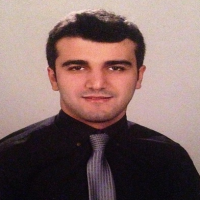






 Web
Web
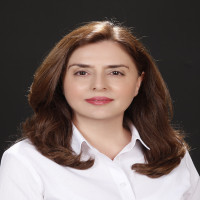
ffsaaaaaaaaaaaaaaaaaaaaaaaaaaaaaaaaaaaaaaaaaaaaaaaaaaaaaaaaaaaaaaaaaaaaaaaaaaaaaaaaaaaaaaaaaaaaaaaaaaaaaaaaaaaaaaaaaaaaaaaaaaaaaaaaaaaaaaaaaaaaaaaaaaaaaaaaaaaaaaaaaaaaaaaaaaaaaaaaaaaaaaaaaaaaaaaaaaaaaaaaaaaaaaaaaaaaaaaaaaaaaaaaaaaaaaaaaaaaaaaaaaaaaaaaaaaaaaaaaaaaaaaaaaaaaaaaaaaaaaaaaa

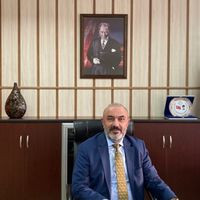
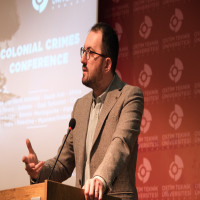
Siyaset Bilimi
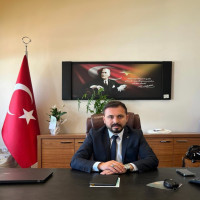
2004 yılında Fırat Üniversitesi’nin Türk Dili ve Edebiyatı Bölümü Yeni Türk Edebiyatı Anabilim Dalı’nda yüksek lisans öğrenimine başladı. Yine aynı yıl Yeni Türk Edebiyatı Anabilim Dalı’na Araştırma Görevlisi olarak atandı. 2006 yılında “Tahsin Yücel’in Öyküleri Üzerine Bir İnceleme” adlı çalışmasıyla yüksek lisansını tamamladı. 2006 yılında Fırat Üniversitesi, Türk Dili Edebiyatı, Yeni Türk Edebiyatı Anabilim Dalı’nda doktoraya başladı. “Halide Edib Adıvar’ın Romanlarında Yapı ve İzlek” isimli doktora tezini 2010 yılında tamamlayarak, 2012 yılında Yrd. Doç. Dr., 2018 yılında doçent, 2023 yılında ise Yeni Türk Edebiyatı Bilim Dalı'nda Profesör oldu.
Yazar, Türk Dili, Türk Dünyası, Belleten, bilig, Folklor/Edebiyat, Türk Kültürü, Türk Dünyası, Erdem, Arayışlar, E-Journal of New World Sciences Academy, Fırat Üniversitesi Sosyal Bilimler Enstitüsü Dergisi, Bingöl, Üniversitesi Sosyal Bilimler Enstitüsü Dergisi, Karaman Üniversitesi Sosyal Bilimler Enstitüsü Dergisi, Turkish Studies, JASS, Hacettepe Üniversitesi Türkiyat Araştırmaları Dergisi, Siirt Üniversitesi Sosyal Bilimleri Dergisi, Journal of Turkısh Language and Literature, Mecmua, Researcher: Social Science Studies, International Journal of Language Academy, Varlık, Ada, Roman Kahramanları, Telmih vb. dergilerde çalışmalar yayımlandı.
Prof. Dr. Veysel ŞAHİN'in Akçağ Yayınevi tarafından okuyucusuyla buluşturulan bilimsel kitapları ise Bilge Kadının Aynadaki Yüzü (Halide Edib Adıvar’ın Romanlarında Yapı ve İzlek), (2014), “Tahsin Yücel ve Aykırı Öykülem” (2017), “Turgut Uyar’ın Şiirlerinde “Ben ve Öteki”nin Görüntü Düzeyleri” (2017), Necip Fazıl Kısakürek’in Şiirlerinde Kronotopsal İmgelem (Zamanın İçinde Mekan/Mekanın İçinde Zaman)” (2023)’dır. Ayrıca yine Akçağ Yayınevi tarafından basılan ve Aysuda Şahin ile “Epik Dünyanın Kurmaca Mitosu Dede Korkut Anlatıları (2019)” adlı çalışması da mevcuttur.
ŞAHİN Kitap bölümü ve editör olarak; “(2017), Romanda Mekân, (Romanda Mekân Poetigi ve Çözümlemeler), Akçağ Yayınları, Ankara.”, “(2018), Romanda Kişiler Dünyası, (Roman Karakterlerinin Doğası Üzerine İncelemeler…), Akçağ Yayınları, Ankara.”, “(2020), Romanda Bakış Acısı ve Anlatıcı Düzlemi, Akçağ Yayınları, Ankara.”, “(2021), Romanda Zaman, (Romanda Zaman Poetigi Üzerine…) Akçağ Yayınları, Ankara.” ve “(2022), Edebiyat Kuramı ve Eleştiri (Kuram-Kavram-Kapsam-Yöntem-Uygulama), Akçağ Yayınları, Ankara.” adlı çok çeşitli akademik çalışmalara imza attı.
2020 yılından itibaren “Turkish Academic Studies-TURAS” adlı uluslararası hakemli dergiyi çıkarmaya başlayan Prof. Dr. Veysel ŞAHİN, halen Fırat Üniversitesi Türk Dili ve Edebiyatı Bölümü Yeni Türk Edebiyatı Anabilim Dalı’nda öğretim üyesi olarak görev yapmaktadır. Yazar evli olup iki çocuk babasıdır.
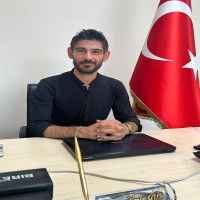
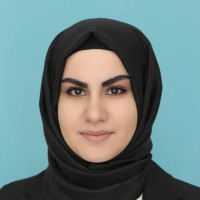

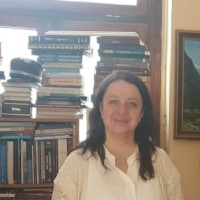
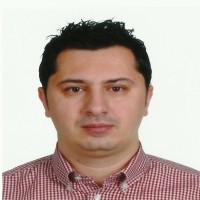
Çağatay Benhür, 10.06.1974 tarihinde Ankara’da doğdu. 1992 yılında Ankara Bahçelievler Deneme Lisesinden mezun oldu. 1993-1997 tarihleri arasında Selçuk Üniversitesi Fen Edebiyat Fakültesi Tarih Bölümünde eğitim gördü. 1998-2001 tarihleri arasında Selçuk Üniversitesi Sosyal Bilimler Enstitüsü Atatürk İlkeleri ve İnkılap Tarihi Bilim Dalında yüksek lisansını tamamladı. 2001-2008 tarihleri arasında Selçuk Üniversitesi Sosyal Bilimler Enstitüsü Atatürk İlkeleri ve İnkılap Tarihi Bilim Dalında doktora eğitimi gördü. 1998-2009 yılları arasında Selçuk Üniversitesi Fen-Edebiyat Fakültesi Tarih Bölümünde Araştırma Görevlisi olarak çalıştı. 2009 yılından beridir de Selçuk Üniversitesi Edebiyat Fakültesi Tarih Bölümünde öğretim üyesi olarak görev yapmaktadır (2024 yılından beri Profesör). Bu arada 2002-2003 öğretim yılında Ukrayna Simferopol Pedagoji Üniversitesi Türkoloji Bölümünde konuk öğretim görevlisi olarak çalıştı. Kazakistan Kızılorda Korkut Ata Üniversitesi’nde dersler verdi. Berlin Freie Üniversitesi ve Prag Karlova Üniversitelerinde araştırmacı olarak bulundu. Askerliğini, Bursa İl Jandarma Alay Komutanlığında 2009 yılında kısa dönem olarak yaptı. İngilizce ve Rusça bilen Çağatay Benhür, evli ve 2 çocuk sahibidir.
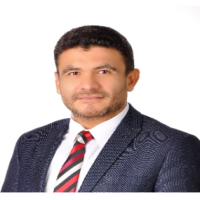


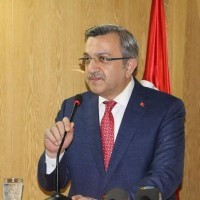
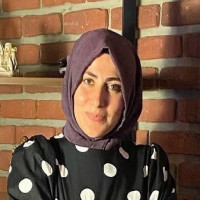
Aim & Scope
FOCUS
The Fırat University Journal of Social Sciences (p-ISSN 1300-9702, e-ISSN 2149-3243) is an international peer-reviewed journal published triannually in print and electronic formats in January, May, and July, providing a platform for researchers and scholars in the social sciences to present their scientific studies.
SCOPE
Author Guidelines
CLICK HERE TO DOWNLOAD THE SAMPLE ARTICLE TEMPLATE
Articles intended for publication in the Fırat University Journal of Social Sciences should primarily be original works that contribute to the field of social sciences and must possess the following qualities:
1. Titles in Turkish and foreign languages should be compatible with the scope of the article; they should reflect the subject of the article briefly, clearly, and adequately.
2. Summaries in Turkish and foreign languages should reflect the purpose, scope, and results of the writing and should be prepared in a way that can be published separately from other sections of the text.
3. The writing should adhere to grammatical rules in terms of language and expression, follow a clear and straightforward narrative style, avoid unnecessary information that goes beyond the purpose and scope, and comply with the rules of article writing.
4. In the preparation of the article, established scientific methods should be followed, and information such as the subject, purpose, scope, and rationale for the preparation of the study should be provided adequately and in a specific order. The figures, tables, photographs, and other documents used in the article should be prepared in accordance with scientific standards, selected in line with the purpose and scope of the writing, and unnecessary documents and sources that are not mentioned in the text should not be included.
5. The figures, tables, photos, and other documents used in the article must have a clear and sufficient explanation that is easy to understand.
6. The sources used in the text should be organized according to writing rules, and every document mentioned should be included in the references section; however, documents that are not referenced in the text should not be included in the references section.
7. The results should be consistent with the aims and scope of the research, presented in a concise and essential manner, and should not include data or findings that are not mentioned in the text.
8. For any research conducted using qualitative or quantitative approaches that involve data collection from participants through surveys, interviews, focus group studies, observations, experiments, or other interview techniques, an "Ethics Committee Approval Document" must be obtained.
9. All articles to be submitted to our journal must include a "Similarity Report" (Plagiarism Report).
10. The article file should be uploaded in two separate instances, one of which must include the authors' names within the work, while the other must not contain any author information. The file name should also include the title of the work, not just the author's name.
Example file name:
V1_untitled_article title
Article titled V1.
11. An author can only have one article published in any issue of our magazine, regardless of the order of authorship.
12. Considering the TR INDEX criteria (in your institution, the number of articles and the peer review ratio should be at most 1/3) and taking into account the journal density, an author will have only one publication in a year.
Ethical Principles and Publication Policy
Price Policy
Journal of Social Sciences is an open access journal.

